
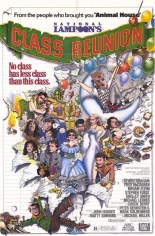 As I was painfully reliving the experience of watching National Lampoon’s Class Reunion, I felt a strange sense of déjà vu. Not because I remembered seeing it back when I was a wee child of the ’80s, but because it kept reminding me of another movie that really sucked.
As I was painfully reliving the experience of watching National Lampoon’s Class Reunion, I felt a strange sense of déjà vu. Not because I remembered seeing it back when I was a wee child of the ’80s, but because it kept reminding me of another movie that really sucked.
“Hey,” I heard myself shout in my brain when the connection was finally made, “this is just like Slaughter High!”
A quick overview of the plots of the two films makes this clear as both are about a group of assholes whose class reunion at their closed-down high school is interrupted by a disgruntled former student whose life was ruined via a tasteless class prank. Space prevents me from listing the other ways the two films coincide, but at a certain point, I stopped keeping count.
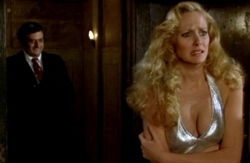 The main difference between them is that Class Reunion was marketed as a straight comedy, which it constantly (and depressingly) attempts to be, while Slaughter High was marketed as a straight horror film, despite the fact that a combination of the filmmaker’s incompetence and contempt for the audience makes it play far more like an unsuccessful spoof than a typical slasher movie.
The main difference between them is that Class Reunion was marketed as a straight comedy, which it constantly (and depressingly) attempts to be, while Slaughter High was marketed as a straight horror film, despite the fact that a combination of the filmmaker’s incompetence and contempt for the audience makes it play far more like an unsuccessful spoof than a typical slasher movie.
Made by what can charitably be described as the then-Lampoon’s B-company, the John Hughes-penned Class Reunion helps prove my two long-held beliefs that there is nothing worse than a bad slasher movie parody and that there is no such thing as a good slasher movie parody. Still, this is better than any National Lampoon movie that’s been made in the last decade. —Allan Mott


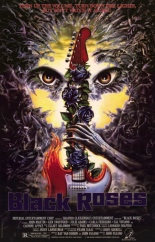
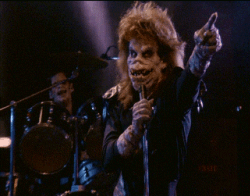 In a small town just a few miles away from wherever
In a small town just a few miles away from wherever 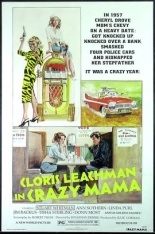
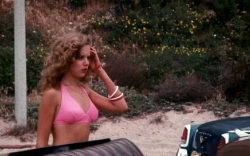 Most of the film’s problems with volume and tone can be blamed on a young Jonathan Demme, who at this point in his career hadn’t developed the sure hand at comedy he would later show with
Most of the film’s problems with volume and tone can be blamed on a young Jonathan Demme, who at this point in his career hadn’t developed the sure hand at comedy he would later show with 
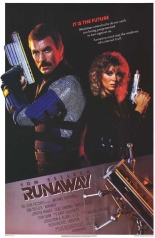
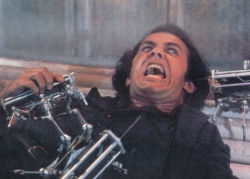 Set in an unspecified future where most menial tasks are now undertaken by non-anthropomorphic robots, Tom Selleck stars as the head of the local police force’s “runaway” squad, which is in charge of catching and stopping malfunctioning machines that pose a hazard to the public. When a robot murders three people, Selleck and his cute new partner, Cynthia Rhodes, uncover a plot by ruthless killer Gene Simmons to fuck everything that moves by selling a “smart bullet” capable of targeting an individual’s heat signature.
Set in an unspecified future where most menial tasks are now undertaken by non-anthropomorphic robots, Tom Selleck stars as the head of the local police force’s “runaway” squad, which is in charge of catching and stopping malfunctioning machines that pose a hazard to the public. When a robot murders three people, Selleck and his cute new partner, Cynthia Rhodes, uncover a plot by ruthless killer Gene Simmons to fuck everything that moves by selling a “smart bullet” capable of targeting an individual’s heat signature.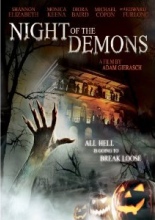
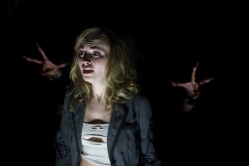 Eventually, the demons appeared at the Halloween party and the characters grew less overtly hateful, and while I never actually found myself enjoying the film, it also never tortured me as much as the original. It is interesting to note that in the remake’s recreation of the infamous lipstick-in-the-tit scene, Diora Baird’s fake fake boobs look much more fake than Linnea Quigley’s original fake fake boobs, which suggests the art of fake-boob prosthesis is the one special effect that hasn’t advanced much in the intervening years.
Eventually, the demons appeared at the Halloween party and the characters grew less overtly hateful, and while I never actually found myself enjoying the film, it also never tortured me as much as the original. It is interesting to note that in the remake’s recreation of the infamous lipstick-in-the-tit scene, Diora Baird’s fake fake boobs look much more fake than Linnea Quigley’s original fake fake boobs, which suggests the art of fake-boob prosthesis is the one special effect that hasn’t advanced much in the intervening years.